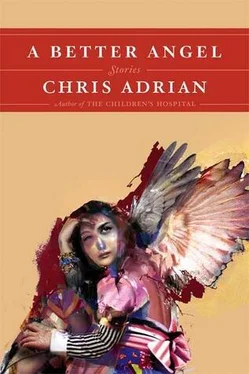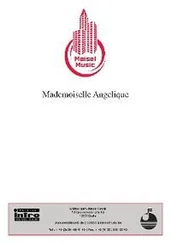The Rebs keep charging and falling back, ululating as they come. Their peculiar cry makes them sound like reckless, hooting drunks. It was supposed to be formidable, 135 years ago. It unnerved the Union soldiers greatly, and they struggled unsuccessfully to come up with a cry of their own, an answer, a great hurrah to raise their spirits as they rushed forward to die, but contemporary accounts tell that they mostly sounded like they were about to vomit. The Rebel charges must fail. They won’t take the field until Thomas makes an orderly retreat to Chattanooga.
Where does it go? That’s what I want to know. That’s the question I’d like to write in Clay’s book. Where does it disappear to, all the pain of an anguished life, after that life has ended? My parents and my brothers, I think they believed it got sucked into Clay’s coffin, in a sort of reverse Pandora’s box effect. So after he died they were always sighing, as if at the sadness of everything, but really I think they were sighing with relief, because they would no longer be tortured with his torturedness.
Joan turns and smiles at me as she loads the funny-paper cartridge. I point my gun at the ground, put my hand out to touch her shoulder. “Don’t,” I say weakly. All around us people are conducting the ordinary business of battle, cocking, firing, charging, taking their hits and offering up their dying groans. I don’t watch her do it. I take a hit and cover my eyes while she raises her rifle and picks out her Reb. I imagine her searching, looking for a nice, juicy, backward-thinking one. “Don’t,” I say again, but I feel a thrill inside when I hear her fire, and I imagine Clay taking a shot at the world that heaped him. The sky is an obscene belly. It smothers me . I see my brother stab back at the world, not consenting to be ruined and killed by it.
I uncover my eyes. Joan is standing just in front of me, looking very calm, peering through the smoke. She raises her rifle, and I think she’ll shoot again, that she has more bullets, that even if I had taken away her cartridge she still would have shot somebody. But she drops her rifle, takes a hit with a moan more of pleasure than of pain, and falls down with a peaceful look on her face.
“Crybaby,” she says to me.
A CHILD’S BOOK OF SICKNESS AND DEATH
My room , 616, is always waiting for me when I get back, unless it is the dead of winter, rotavirus season, when the floor is crowded with gray-faced toddlers rocketing down the halls on fantails of liquid shit. They are only transiently ill, and not distinguished. You earn something in a lifetime of hospitalizations that the rotavirus babies, the RSV wheezers, the accidental ingestions, the rare tonsillectomy, that these sub-sub-sickees could never touch or have. The least of it is the sign that the nurses have hung on my door, silver glitter on yellow posterboard: Chez Cindy .
My father settles me in before he leaves. He likes to turn down the bed, to tear off the paper strap from across the toilet, and to unpack my clothes and put them in the little dresser. “You only brought halter tops and hot pants,” he tells me.
“And pajamas,” I say. “Halter tops make for good access. To my veins.” He says he’ll bring me a robe when he comes back, though he’ll likely not be back. If you are the sort of child who only comes into the hospital once every ten years, then the whole world comes to visit, and your room is filled with flowers and chocolates and aluminum balloons. After the tenth or fifteenth admission, the people and the flowers stop coming. Now I get flowers only if I’m septic, but my uncle Ned makes a donation to the Short Gut Foundation of America every time I come in.
“Sorry I can’t stay for the H and P,” my father says. He would usually stay to answer all the questions the intern du jour will ask, but during this admission we are moving. The new house is only two miles from the old house, but is bigger, and has views. I don’t care much for views. This side of Moffitt Hospital looks out over the park and beyond that to the Golden Gate. On the nights my father stays, he’ll sit for an hour watching the bridge lights blinking while I watch television. Now he opens the curtains and puts his face to the glass, taking a single deep look, before turning away, kissing me goodbye, and walking out.
After he’s gone, I change into a lime-green top and bright-white pants, then head down the hall. I like to peep into the other rooms as I walk. Most of the doors are open, but I see no one I know. There are some orthopedic-looking kids in traction; a couple of wheezers smoking their albuterol bongs, a tall, thin, blond girl sitting up very straight in bed and reading one of those fucking Narnia books. She has CF written all over her. She notices me looking and says hello. I walk on, past two big-headed syndromes and a nasty rash. Then I’m at the nurses’ station, and the welcoming cry goes up, “Cindy! Cindy! Cindy!” Welcome back, they say, and where have you been , and Nancy, who always took care of me when I was little, makes a booby-squeezing motion at me and says, “My little baby is becoming a woman!”
“Hi, everybody,” I say.
See the cat? The cat has feline leukemic indecisiveness. He is losing his fur, and his cheeks are hurting him terribly, and he bleeds from out of his nose and his ears. His eyes are bad. He can hardly see you. He has put his face in his litter box because sometimes that makes his cheeks feel better, but now his paws are hurting and his bladder is getting nervous and there is the feeling at the tip of his tail that comes every day at noon. It’s like someone’s put it in their mouth and they’re chewing and chewing .
Suffer, cat, suffer!
I am an ex-twenty-six-week miracle preemie. These days you have to be a twenty-four-weeker to be a miracle preemie, but when I was born you were still pretty much dead if you emerged at twenty-six weeks. I did well except for a belly infection that took about a foot of my gut — nothing a big person would miss but it was a lot to one-kilo me. So I’ve got difficult bowels. I don’t absorb well, and get this hideous pain, and barf like mad, and need tube feeds, and beyond that sometimes have to go on the sauce, TPN — total parenteral nutrition — where they skip my wimpy little gut and feed me through my veins. And I’ve never gotten a pony, despite asking for one every birthday for the last eight years.
I am waiting for my PICC — you must have central access to go back on the sauce — when a Child Life person comes rapping at my door. You can always tell when it’s them because they knock so politely, and because they call out so politely, “May I come in?” I am watching the meditation channel (twenty-four hours a day of string ensembles and trippy footage of waving flowers or shaking leaves, except late, late at night, when between two and three a.m. they show a bright field of stars and play a howling theremin) when she simpers into the room. Her name is Margaret. When I was much younger I thought the Child Life people were great because they brought me toys, and took me to the playroom to sniff Play-Doh, but time has sapped their glamour and their fun. Now they are mostly annoying, but I am never cruel to them, because I know that being mean to a Child Life specialist is like kicking a puppy.
“We are collaborating with the children,” she says, “in a collaboration of color, and shapes, and words! A collaboration of poetry and prose!” I want to say, People like you wear me out, honey. If you don’t go away soon I know my heart will stop beating from weariness, but I let her go on. When she asks if I will make a submission to their hospital literary magazine I say, “Sure!” I won’t, though. I am working on my own project, a child’s book of sickness and death, and cannot spare thoughts or words for The Moffitteer .
Читать дальше












